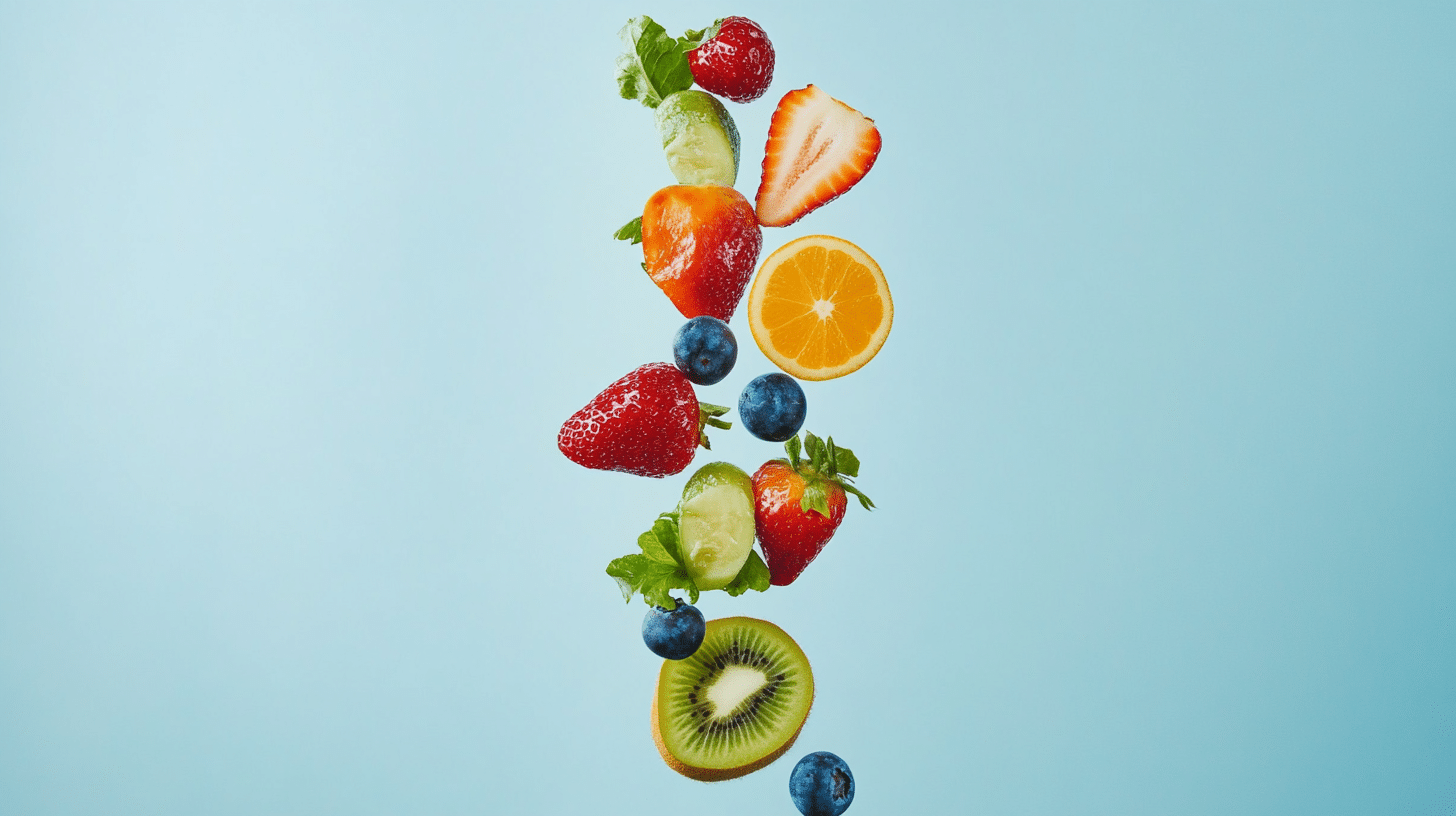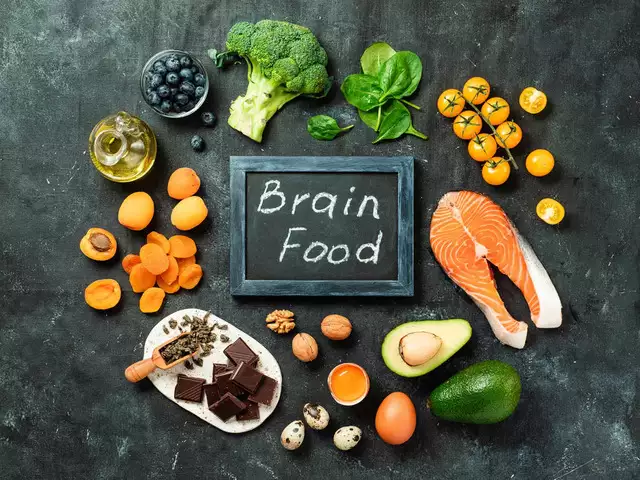
In today’s world, when the pace of life is constantly accelerating, the question of proper nutrition is more important than ever. Our body is like a high-tech machine that needs quality fuel for optimal performance. Any healthy lifestyle expert will tell you that what we eat has a direct impact on our energy, concentration and general well-being.
Even the simplest adjustments to your diet can help to dramatically change the quality of your life – improve your performance, normalise your sleep, spend a positive time in wypłacalne kasyna internetowe Blik, play tennis or football on the court and boost your vitality in general. In the article below we will share information about the most useful products that will help you stay in top shape and enjoy every day of your life.
Superfoods and their role in our diet
In the world of healthy eating, the term ‘superfoods’ appeared relatively recently, but has already managed to gain huge popularity. And these products have started to appear not only in food blogs, but even some athletes and poker players have ‘flashed’ with them. Which is not surprising, because the impact of ‘superfoods’ on concentration is hard to overestimate.
For example, having received darmowe 50 zł za rejestrację kasyno and maintaining an attentive and responsible approach, you can really succeed both in gambling and in everyday affairs.
In general, ‘superfoods’ – are products with an exceptionally high concentration of useful substances, vitamins and minerals. They can significantly improve the work of the body, improve immunity and provide the necessary energy for the whole day. Perhaps we can highlight the top ten most effective superfoods:
- Goji berries. These little red berries contain a record amount of antioxidants. An improvised cellular shield that will protect cells from early wear and tear. They are also brimming with vitamin C and iron. Just add 1-2 spoonfuls (found in every kitchen) to your morning porridge or smoothie.
- Quinoa. An ancient Inca crop that contains a full range of amino acids. Especially valuable for vegetarians, as it is a top-notch ‘supplier’ of plant protein. Ideal as a side dish or as a base for healthy salads.
- Chia. Small chia seeds are a real natural storehouse of omega-3 fatty acids. They are excellent satiating and correlate the concentration of sugars in the blood. It is convenient to add them to yoghurt or smoothies before a long run.
- Spirulina. Blue-green algae filled with protein and chlorophyll. Helps cleanse the body and boost energy. 1 teaspoon of powder per day is sufficient.
- Cocoa beans. Unprocessed cocoa beans contain many antioxidants and natural stimulants that improve mood. They can be added to desserts or eaten as a snack on their own.
- Açaí. These dark purple berries from Brazil are a veritable treasure trove of anthocyanins, which protect the heart and blood vessels. They contain a record amount of antioxidants, even more than blueberries. Perfect for making healthy bowls or adding to smoothies.
- Matcha. Japanese green tea powder contains L-theanine, an amino acid that provides calm concentration without jitters. Unlike coffee, the energy from matcha is released gradually and lasts longer. You can add it to smoothies, baked goods or make a traditional drink.
- Seaweed. Nori, wakame and other sea plants are packed with iodine and minerals. Their job is to support quality thyroid function and ‘cement’ the immune system. A cool choice for soups, salads, or as a snack.
- Turmeric. This is not just a spice, but a powerful anti-inflammatory agent. The curcumin in it improves brain function and protects against many diseases. Add it to smoothies, curries or make golden milk.
- Avocado. A treasure trove of valuable monounsaturated fats. Not only that. Vitamin E. Helps absorb fat-soluble vitamins. Ideal for toast, salads or as a base for sauces.
How to incorporate superfoods into your daily menu? You can take a low-key approach here:
1. Start small – add 1-2 superfoods to your regular meals.
2. Experiment with smoothie and salad recipes.
3. Replace your usual snacks with healthier alternatives.
It’s important to remember that superfoods are not a magic pill, but part of a balanced diet. Deciding to eat only them for a long period of time is a big mistake. The body needs variety, so superfoods work best when combined with other healthy foods. Start by adding small amounts of these foods to your diet, and you will notice a gradual increase in energy and well-being. The main thing is to observe the measure and listen to your body.
Features of protein foods

Protein is a fundamental building material for our body, playing a key role in the formation of muscle tissue, the production of hormones and the maintenance of the immune system. It is especially important to consume enough protein to maintain concentration and mental clarity for long periods of time. What are some of the best sources of protein? Here they are:
– Fish – in addition to protein, fish is rich in omega-3 fatty acids, which are essential for brain function:
- Salmon (23 g protein per 100 g of product).
- Tuna (25 g protein per 100 g).
- Cod (19 g protein per 100 g).
– Meat – choose lean meats from trusted producers:
- Chicken breast (23 g protein per 100 g).
- Turkey (24 g protein per 100 g). o Beef (26 g protein per 100 g).
- Beef (26 g protein per 100 g).
– Vegetable sources are ideal for vegetarians and those who are fasting:
- Lentils (9 g protein per 100 g).
- Quinoa (14 g protein per 100 g).
- Chickpeas (19 g protein per 100 g).
As for the optimum amount of protein in the diet, the daily protein allowance is calculated individually and depends on several factors:
- Body weight.
- Level of physical activity.
- Age.
- Health status.
On average, it is recommended to consume 0.8-1.2 g of protein per kilogram of body weight. For example, if you weigh 70kg, you should consume 56-84g of protein per day. Even an increase in protein intake to 1.5 g per kilogram of body weight can significantly improve concentration during prolonged work at the computer. However, important rules for protein intake should be remembered:
1. Distribute protein meals evenly throughout the day.
2. Combine animal and plant sources.
3. Do not forget about proper heat treatment.
4. Take into account individual food tolerance.
Remember that too much protein can be just as harmful as not enough. For example, if you get carried away with protein shakes and exceed the daily protein allowance by two times, the result will be increased strain on the kidneys and general discomfort.
Useful carbohydrates and their proper combinations
Carbohydrates are often the subject of controversy in the world of proper nutrition. However, it is important to understand: not all carbohydrates are the same, and properly combined sources of these substances are the key to optimal performance of our ‘grey matter’ and maintaining energy during the day. Complex and simple carbohydrates are distinguished. Those that are complex carbohydrates (whole-grain cereals, legumes, vegetables) are slowly broken down, maintain correct glucose levels, and provide long-lasting energy. Simple carbohydrates (white sugar, honey, candy) digest quickly, provoke spikes in sugar concentration, give a short-term burst of energy. The best sources of healthy carbohydrates are:
– Whole-grain products – contain lots of fibre and B vitamins:
- Oatmeal.
- Buckwheat.
- Brown rice.
- Wholemeal bread.
– Legumes – rich in both carbohydrates and vegetable protein:
- Beans.
- Lentils.
- Peas.
– Vegetables – they have a lot of complex carbohydrates and even more beneficial micronutrients:
- Batatas.
- Pumpkin.
- Carrots.
It is extremely important to combine carbohydrates correctly. For example, combine with proteins – oatmeal with eggs or buckwheat with turkey. These combinations help keep you feeling satiated longer and keep you focused. Or add healthy fats. For example, adding avocado or nuts to a carbohydrate dish slows the absorption of carbohydrates. Also, don’t forget fibre – vegetables should make up at least a third of a serving. As for the optimal amount of carbohydrates, it is customary to talk about the following figures:
– 44-64% of the total caloric content of the diet.
– For a person with moderate activity it is about 200-300 g per day.
– Most of it should be complex carbohydrates.
But a complete refusal of carbohydrates can lead to reduced performance and memory impairment. Therefore, the main thing is to choose quality products and respect the measure.
Healthy fats: sources and intake rates
Fats have been unfairly demonised over the years, but today science has proven their indispensability for health. The right fats are essential for brain function, vitamin absorption and hormonal balance. Omega-3 and omega-6 fats are distinguished. In turn, omega-3 improve brain function, reduce inflammation, and support the cardiovascular structure of the body.
Omega-6 are involved in building cell membranes, are important for immunity, and are essential for growth and progression. Sources are sunflower oil, sesame, pumpkin seeds. The optimal ratio of omega-6 to omega-3 should be 4:1. However, in the modern diet it often reaches 20:1, which can provoke inflammatory processes. Best sources of healthy fats:
– Vegetable oils:
- Olive oil (cold-pressed).
- Flaxseed oil.
- Avocado.
- Coconut oil.
– Nuts and seeds:
- Almonds.
- Walnuts.
- Pumpkin seeds.
- Chia.
– Fish and seafood:
- Salmon.
- Mackerel.
- Sardines.
- Herring.
The daily intake rate is 20-35% of the total caloric content of the diet. For an average person it is 50-70 g of fats per day. At the same time, at least 2-3 g of them should be omega-3 fatty acids. If you try to completely eliminate fats from your diet, for example, in an attempt to lose weight, the result will be constant fatigue, concentration problems and dry skin. The rules for consuming fats are very simple:
1. favour unrefined oils.
2. Store oils properly (in a dark place, avoiding heat).
3. Do not use oils for frying at high temperatures.
4. Combine different sources of fats.
It is important to remember that even healthy fats are high in calories, so you should control the amount on your plate.
Important vitamins and minerals for daily activity
Micronutrients play a basic role in promoting and maintaining bountiful health and optimal functioning of all our body systems. They are especially important for improving concentration, ‘pumping up’ memory and energy balance. Key vitamins for brain activity:
– Vitamin B12 – boosts memory and concentration, stabilises the nervous system, prevents fatigue.
– Vitamin D – affects cognitive function, regulates mood, strengthens immunity.
– Vitamin E – protects cells from oxidation, improves blood circulation, has a strong healthy effect on the brain.
As for minerals, the most important elements for energy are:
– Magnesium – reduces fatigue, improves sleep quality, regulates the nervous system.
– Iron – provides oxygen transport, supports energy metabolism, reduces the likelihood of anaemia.
– Zinc – strengthens immunity, participates in protein synthesis, supports cognitive function.
With constant drowsiness and decreased concentration, analyses may show a deficiency of vitamin B12 and iron. After adjusting the diet and adding the right products, energy will return in as little as a month. Practical tips for getting vitamins:
1. Eat the rainbow. Include foods of different colours in your diet – each colour stands for a specific set of nutrients.
2. Cook properly. Some vitamins are destroyed by heat treatment, so some vegetables are better eaten raw.
3. Observe seasonality. Seasonal foods contain maximum nutrients.
4. Combine properly. For example, vitamin C improves iron absorption, and vitamin D is better absorbed with fats.
Remember that it is better to get vitamins and minerals from natural products rather than supplements, unless there are medical indications to the contrary.
Useful foods to increase concentration

For certain professions or activities, the ability to stay focused is a key success factor. The right foods can be natural helpers in maintaining mental clarity and high brain performance. Here it is worth paying attention to natural energisers – forget about chemical energy drinks! Nature has created many foods that can energise you without side effects.
Dark chocolate (70% or more cocoa content) is an excellent choice for maintaining concentration due to its theobromine content and small amount of caffeine. Green tea contains L-theanine, which provides calm concentration without nervousness.
There are separate foods for memory as well. Blueberries and other berries are rich in anthocyanins, which improve memory and cognitive function. Walnuts, which outwardly resemble the brain, are actually good for the brain due to their high content of omega-3 fatty acids. Avocados provide brain healthy fats and B vitamins.
Practice anti-stress eating. After all, stress is a ‘favourite’ companion of gambling or a stressful work environment, so it’s important to include foods in your diet that help you cope with it. Dark green leafy vegetables are rich in magnesium, a natural anti-stress mineral. Fatty fish (salmon, sardines, mackerel) contains omega-3’s, which are micro-helpers in regulating cortisol levels. Citrus fruits, thanks to their high vitamin C content, help minimise the effects of stress. But also on a side note: the effect of proper nutrition is cumulative – it’s not enough to eat a handful of blueberries. You need to build a balanced diet on a regular basis to maintain optimal brain function and high levels of concentration.
Diet and its effect on the body
A proper diet is not only a choice of healthy foods, but also a competent distribution of meals throughout the day. Experts recommend sticking to 4-5 meals a day with an interval of 3-4 hours. Breakfast should be in the first hour after waking up – it triggers the metabolism and provides energy for the morning. The second breakfast or snack is about 2-3 hours later. Lunch should preferably be planned for the middle of the day, and dinner – at least 3 hours before bedtime.
It is important not only what to eat, but also how much. The optimal portion size can be determined with a simple rule: the protein portion should be the size of the palm of your hand, the carbohydrate portion should be the size of your fist, and vegetables should be two handfuls. For snacking, one handful of nuts or fruit is sufficient. Overeating can cause drowsiness and reduced concentration – clearly an undesirable effect during professional activities, sports or card games for money.
Drinking is also extremely important. Dehydration of even 2 per cent reduces cognitive ability by 20 per cent. It is necessary to drink 30-35 ml of water per kilogram of weight per day. It is important to distribute water intake evenly throughout the day. Pure water is the best choice, but you can diversify your drinking regime with herbal teas and fresh juices (without added sugar).
Interesting fact: one successful chess player always keeps a bottle of water with added lemon and mint nearby – it not only helps to maintain water balance, but also refreshes the mind during long games. Remember that your eating regime should be comfortable and suited to you. Experiment with meal timings, but keep it regular – this is key to sustained energy and high brain performance.
Harmful foods to avoid
In the pursuit of quick energy and pleasure, we often choose foods that are not only unhelpful, but actively harmful to our bodies. It is especially important to exclude certain categories of products from the diet. What to remove in the first place? First and foremost – food with a prohibitive concentration of harmful sugars.
They provoke peak rises in blood glucose, followed by an equally sharp drop in energy and concentration. Fast food and fried food overload the body with trans fats, slow down thinking and cause drowsiness. Carbonated drinks, especially energy drinks, give the illusion of vigour but deplete the nervous system.
What healthy alternatives can you choose? Instead of sugary snacks, choose fruit or berries – they contain natural sugars and fibre. Replace Chips with baked vegetables or yams. Give up energy drinks in favour of green tea or matcha. Drink homemade freeshes or smoothies instead of packet juices. So what happens if you don’t adjust your diet? Regular consumption of unhealthy foods leads to cognitive decline, impaired memory and concentration. Sleep problems arise, which is critical to maintaining mental clarity. There are sudden mood and energy swings that can lead to rash decisions in life or work.
Remember: the quality of the food you consume directly affects the quality of your life. Every time you choose between an unhealthy snack and a healthy alternative, you are choosing between short-term pleasure and long-term success.
Conclusion
Proper nutrition is not just a fashion trend, but an essential foundation for successful activity and a healthy life in general. By following the basic principles of healthy eating, choosing quality foods and following a regime, you ensure you have sustained energy and high concentration. Start small – replace one unhealthy food with a healthy alternative, gradually building your optimal diet. Remember that investing in a healthy diet is an investment in your success in your profession, sport and life.

